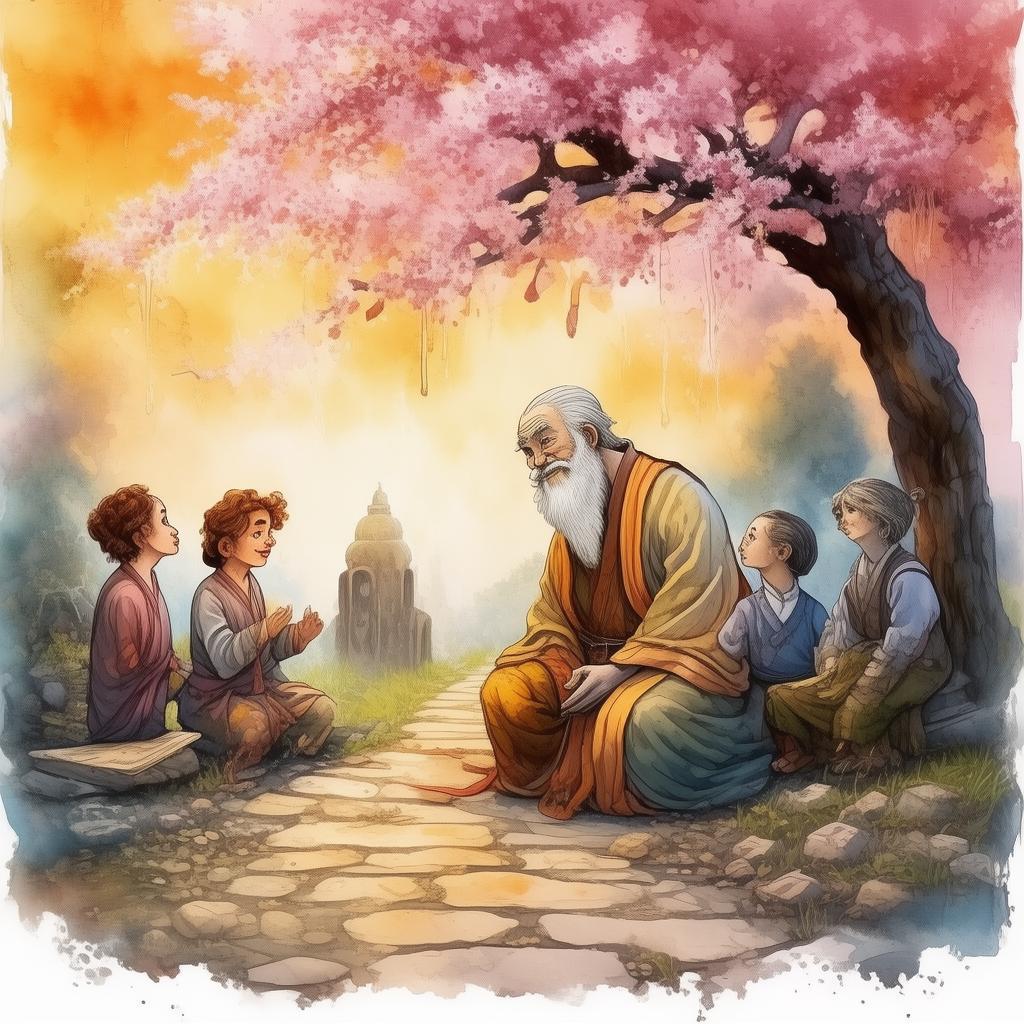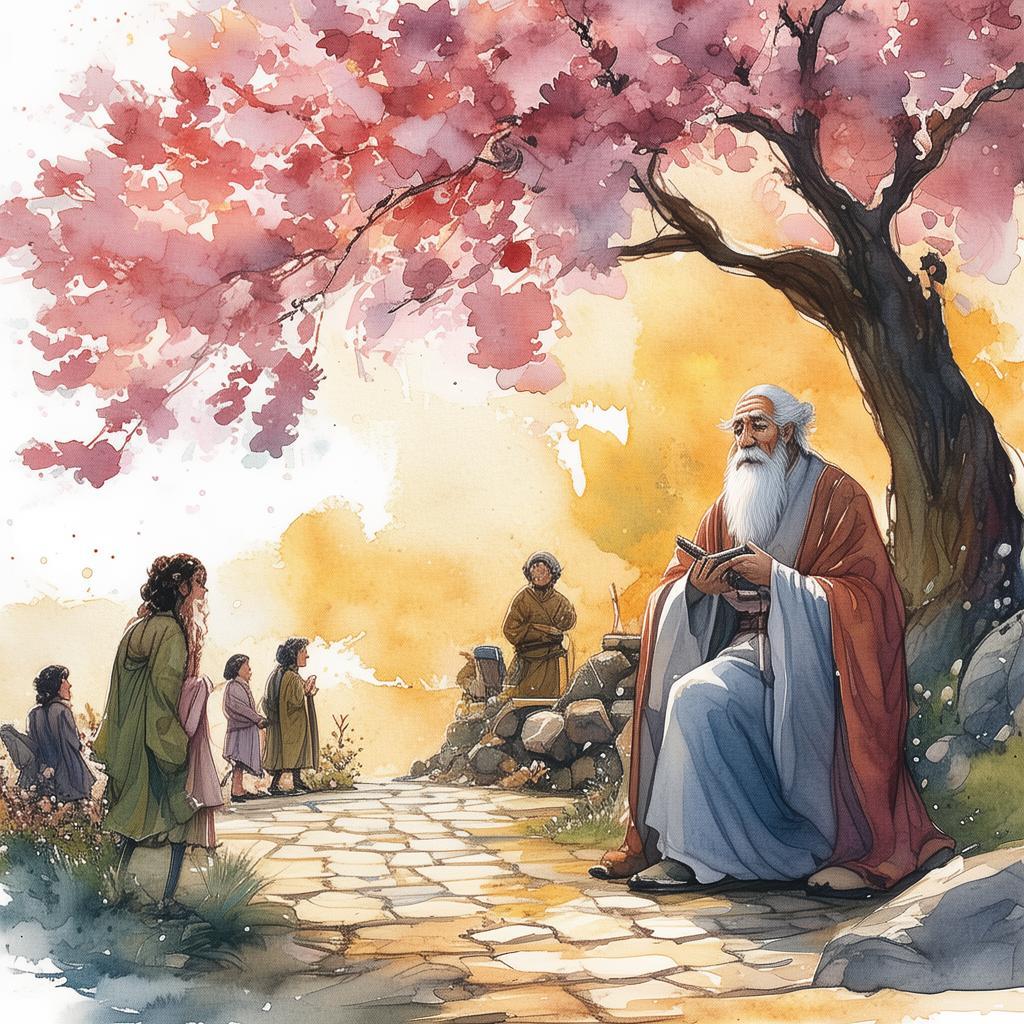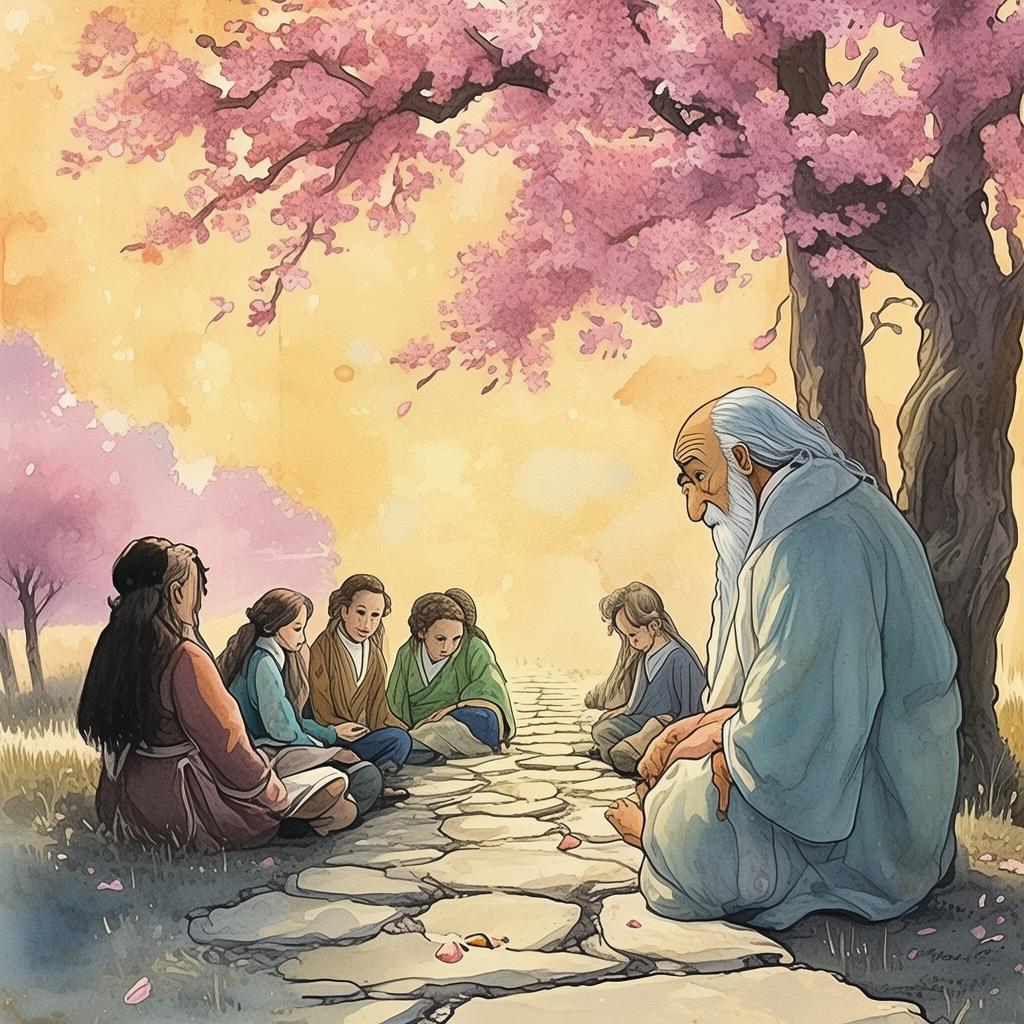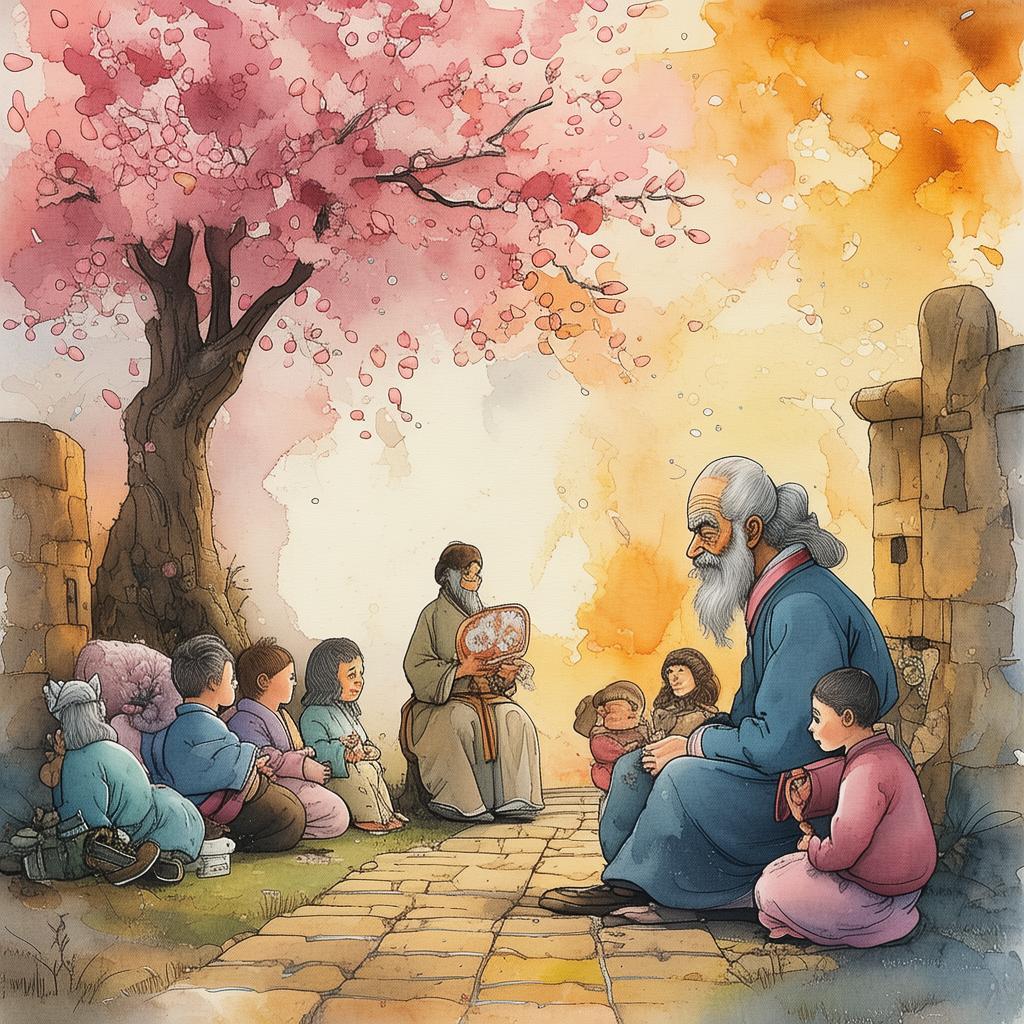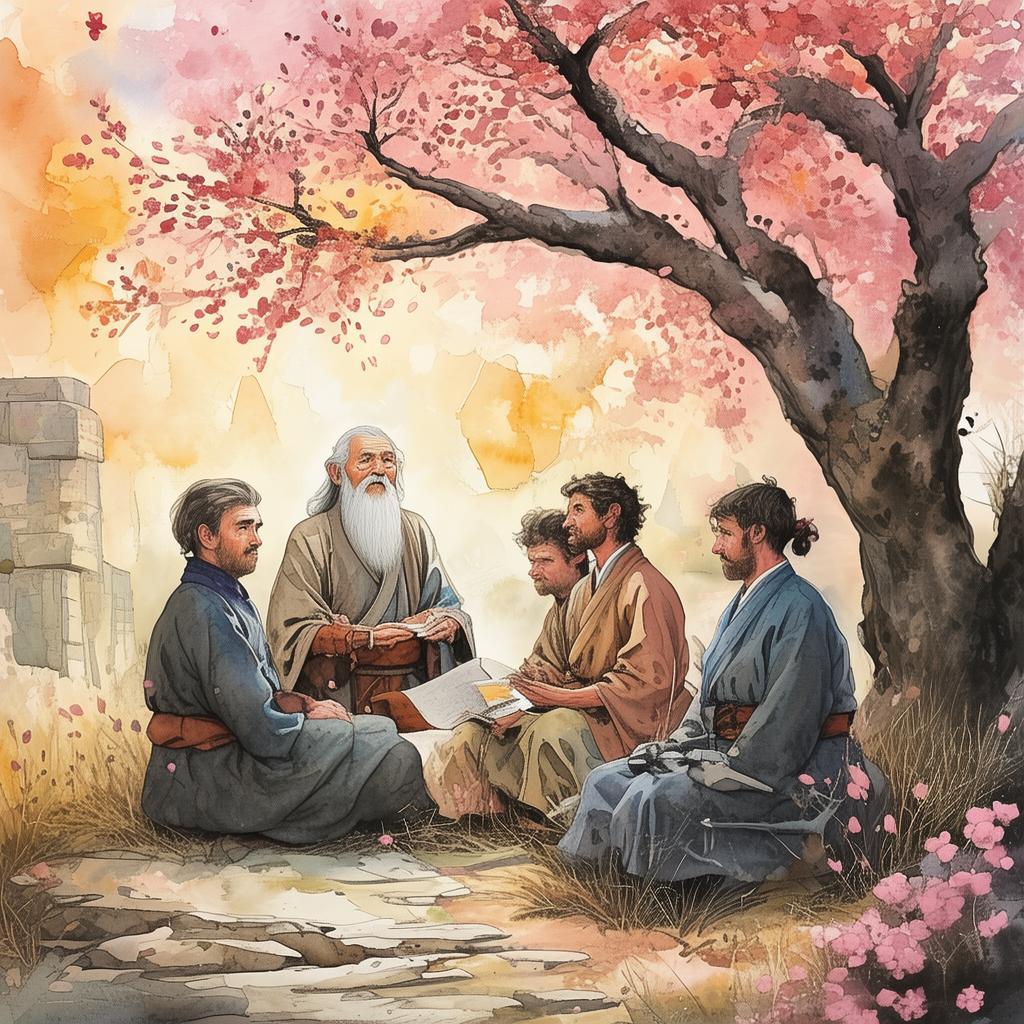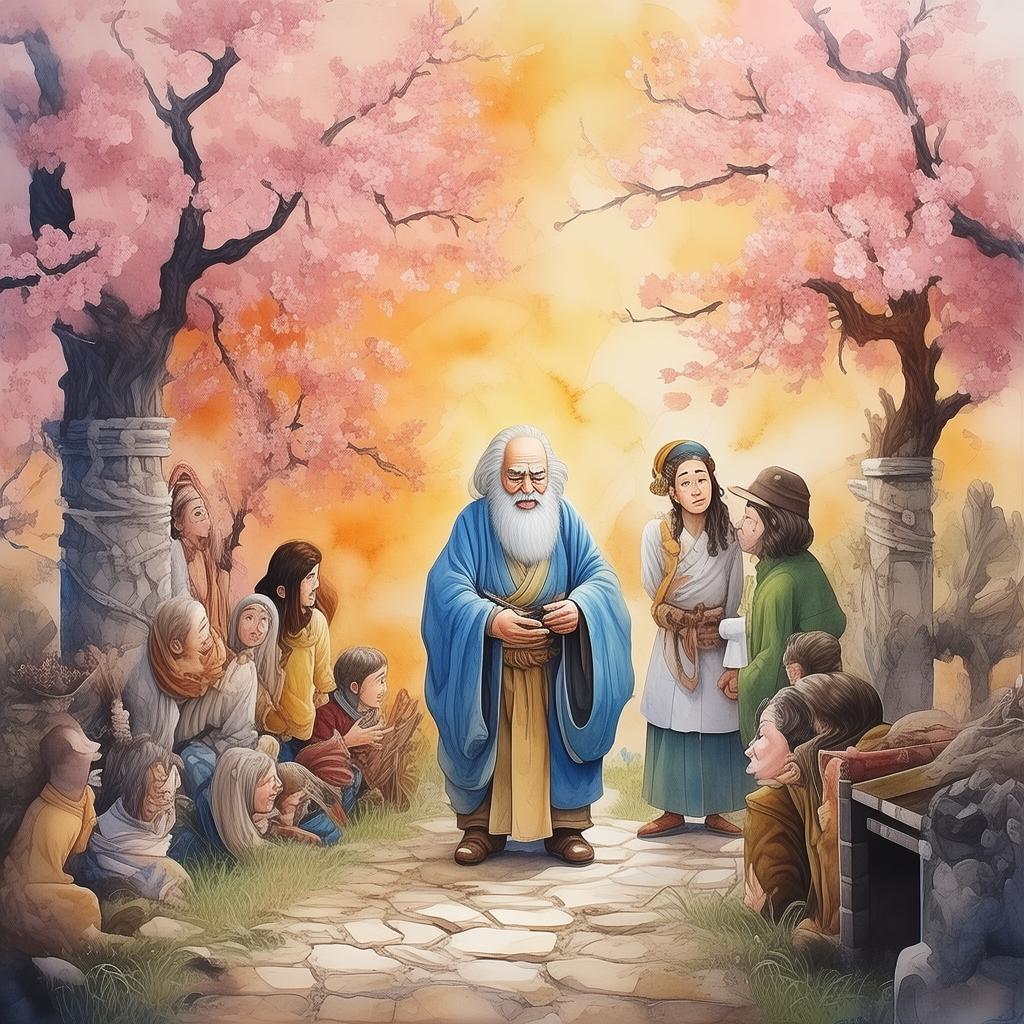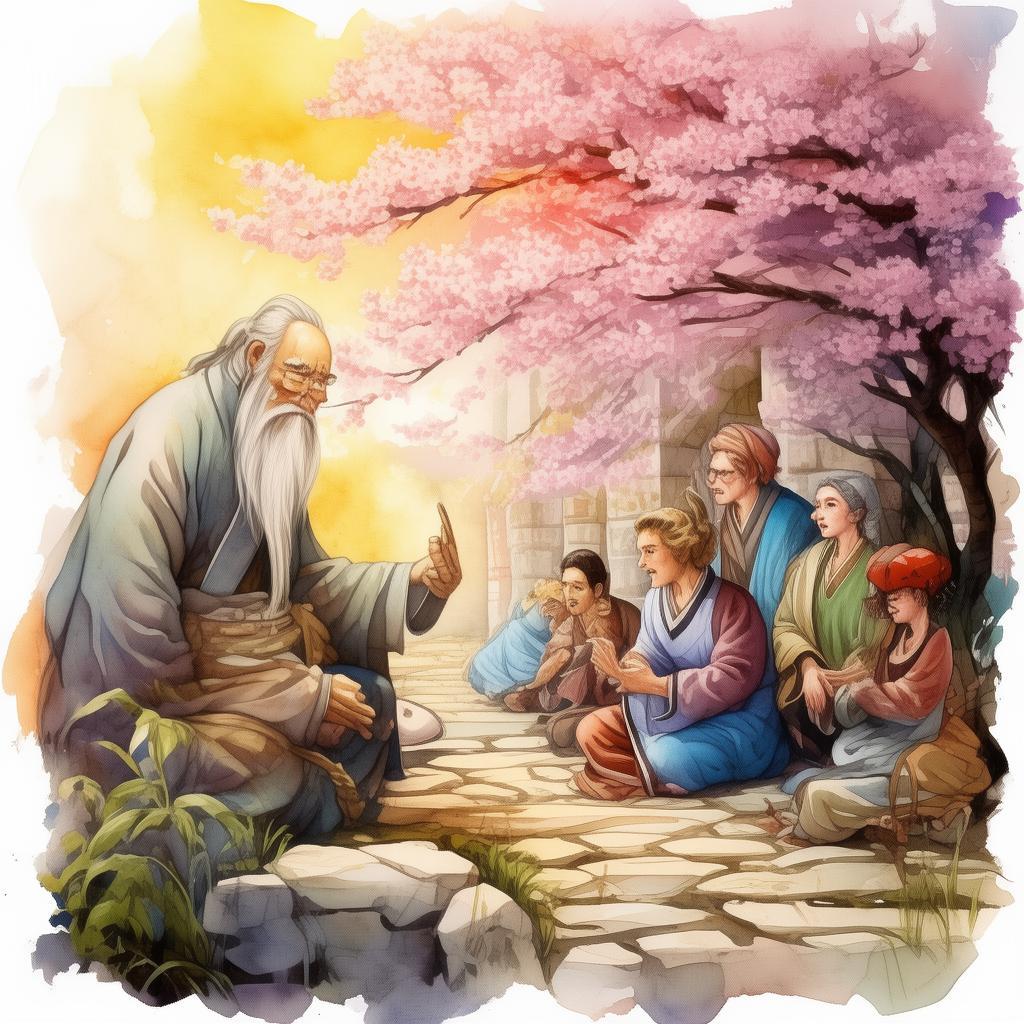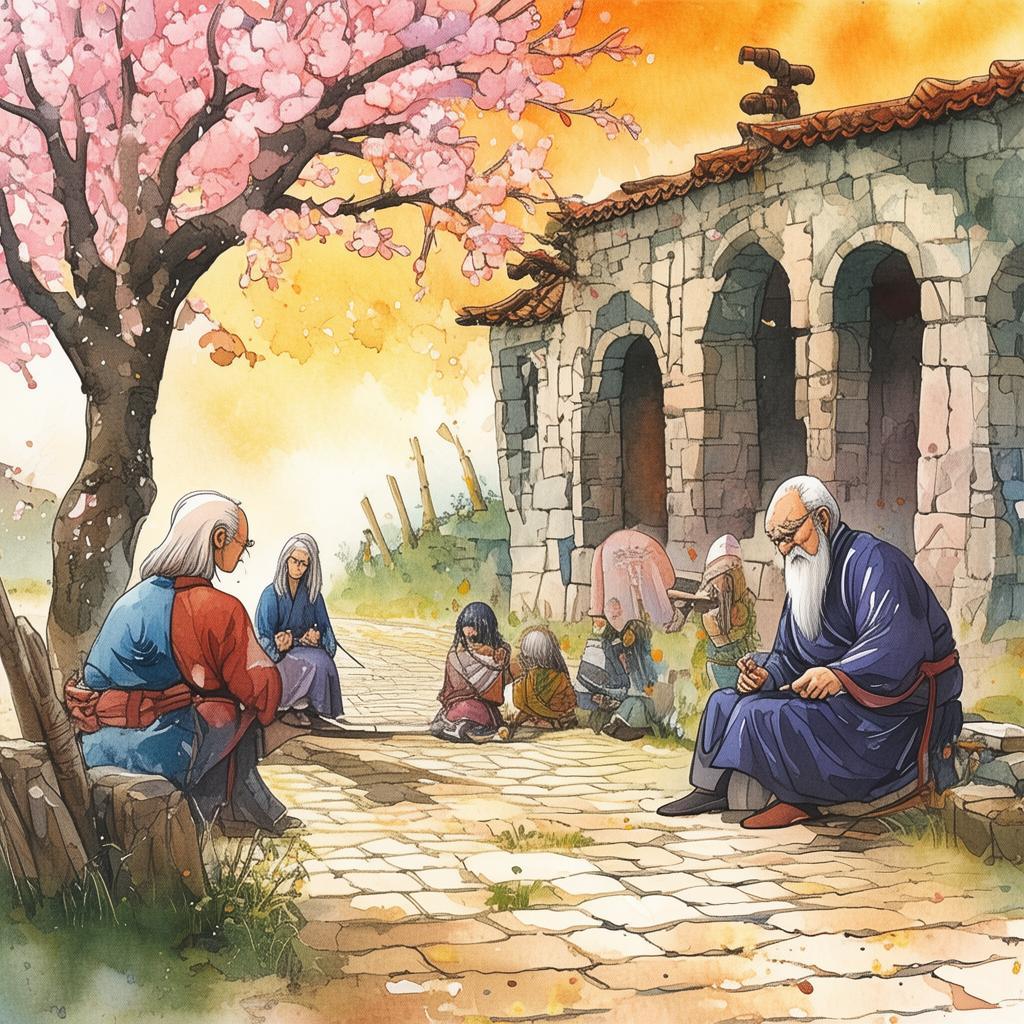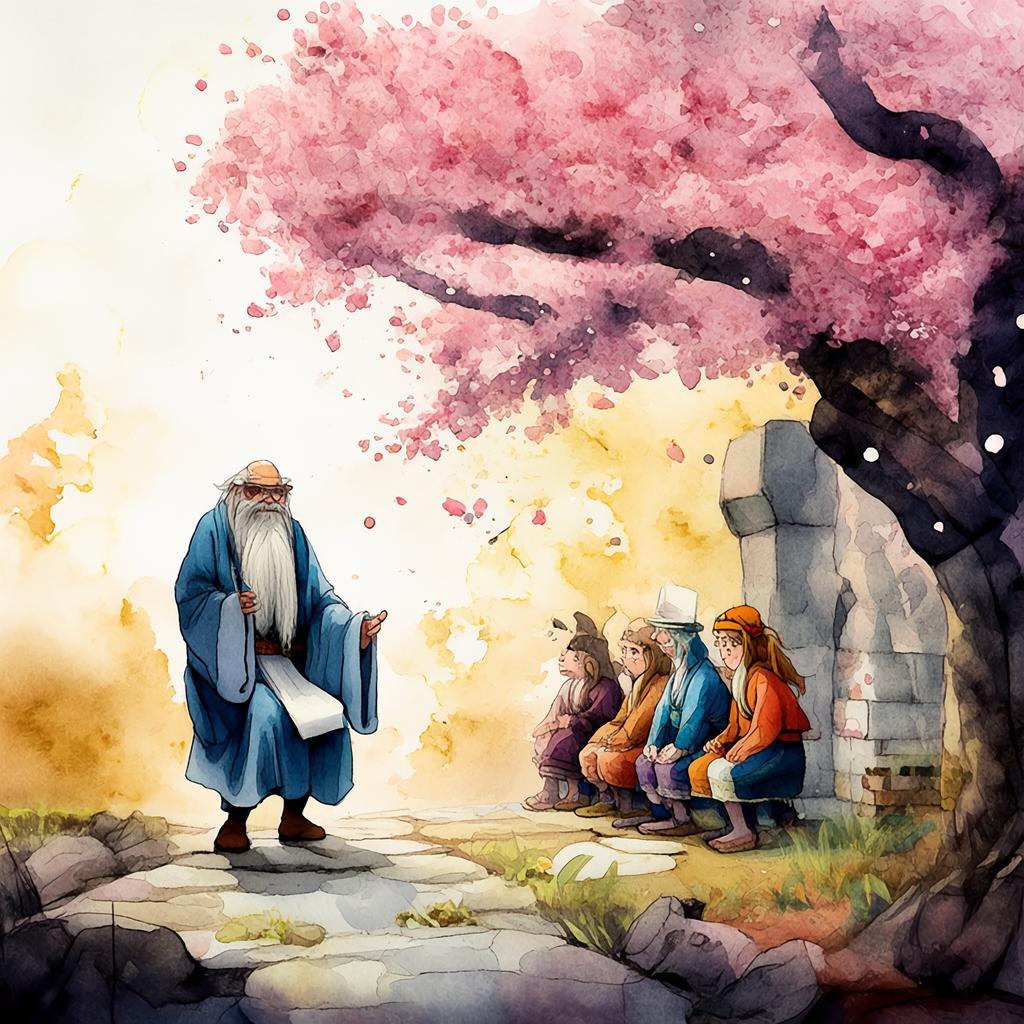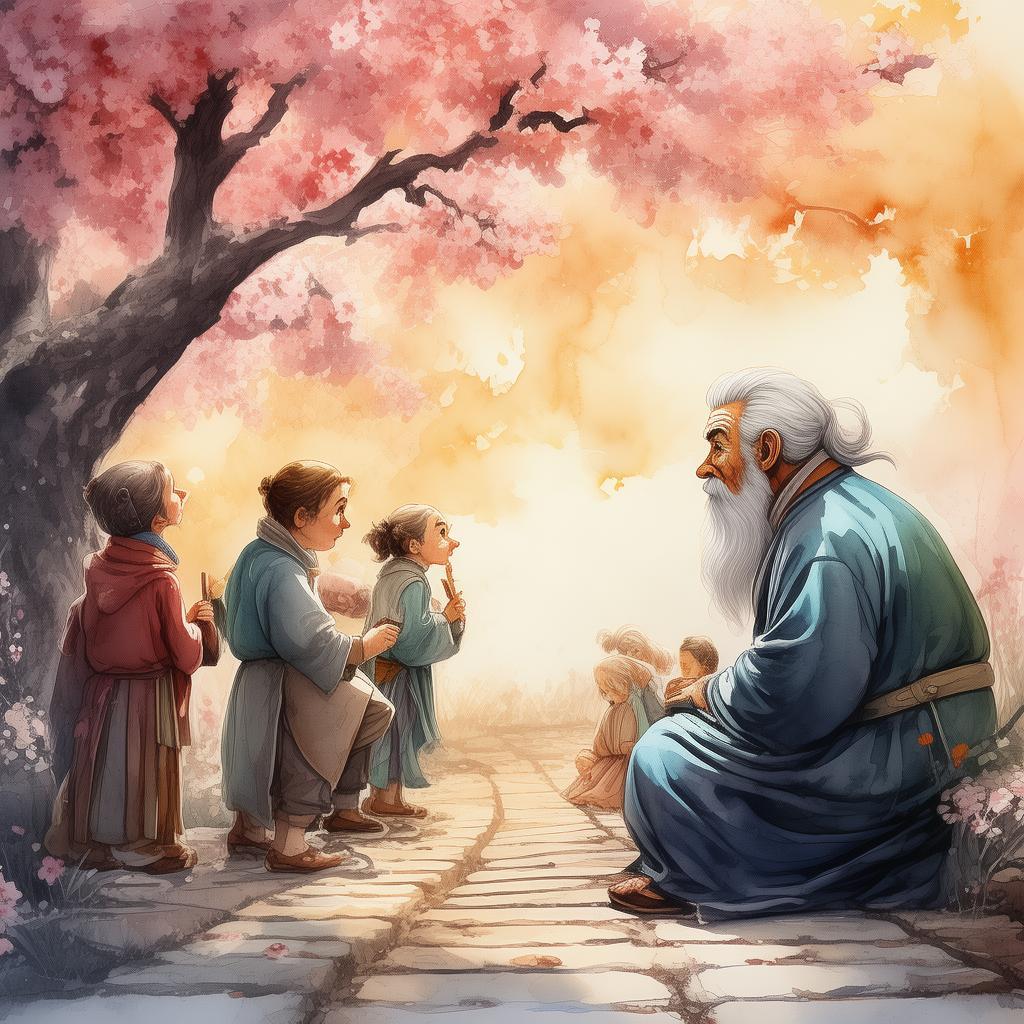Deification Dilemma: The Fall of the False God
In the heart of a verdant valley, nestled between towering mountains, there stood a humble village named Jingli. The villagers were known for their simplicity and piety, their days filled with toil and nights with the glow of lanterns in their modest homes. They worshipped a deity known as the Mountain God, whose image was carved into the stone cliffside that loomed over their village.
The Mountain God, a benevolent force, was said to bring prosperity and good harvests. Each year, the villagers would gather to celebrate the Mountain God Festival, offering prayers and gifts at the shrine at the base of the cliff. But in the year of 642, a mysterious figure appeared among them.
This man, named Feng, was a traveler with a tale to tell. He spoke of a great deity, the Sky God, who was so powerful that even the Mountain God was in awe. Feng claimed that the Sky God could grant wishes, end droughts, and bring eternal peace. The villagers, enchanted by his stories, began to show him favor, and he was soon considered a revered sage.
Feng built a grand altar to the Sky God, using precious stones and gold he had acquired during his travels. He began to hold rituals and ceremonies, drawing the villagers away from their traditional worship. The Mountain God was left in neglect, his shrine gathering dust and cobwebs.
The villagers were so captivated by Feng's tales that they started to neglect their daily duties. The fields lay fallow, and the village fell into disrepair. The Mountain God, feeling forsaken, sent a series of disasters upon the village. Crops withered, diseases spread, and storms raged.
The villagers, now desperate, turned back to their original deity, the Mountain God. They sought forgiveness and promised to return to their former ways of worship. The Mountain God, moved by their penitence, calmed the storms and restored the crops.
Feng, seeing the villagers' change of heart, realized the error of his ways. He confessed to his deception, explaining that the Sky God was a false god, a mere illusion created by the devil to lead them astray. The villagers were appalled and demanded justice.
Feng was tried by the village elders, and it was decided that he must be exiled from their land. As he left, he looked back at the village, his eyes filled with regret. The villagers vowed to never again worship a false god and to remain faithful to the Mountain God, who had proven to be true and faithful.
From that day on, Jingli was known for its steadfast devotion to the Mountain God, a testament to the wisdom of the villagers and the dangers of idolatry. The story of Feng and the False God became a cautionary tale, reminding people of the importance of discernment and the perils of blind faith.
The village of Jingli was rebuilding, the spirit of its people renewed. The fields were lush, the homes were repaired, and the villagers were once again busy with their daily lives. But the story of Feng and the False God was not forgotten.
Old Man Li, a wise elder in the village, took it upon himself to share the tale of the False God with the younger generation. He would gather the children around the fire, his eyes twinkling with the memories of the past.
"The False God, Feng, was a cunning man," Old Man Li would begin. "He told us stories of a deity so powerful that it could grant us anything we desired. But the truth is, the Sky God was a lie, a false god created by the devil to lead us astray."
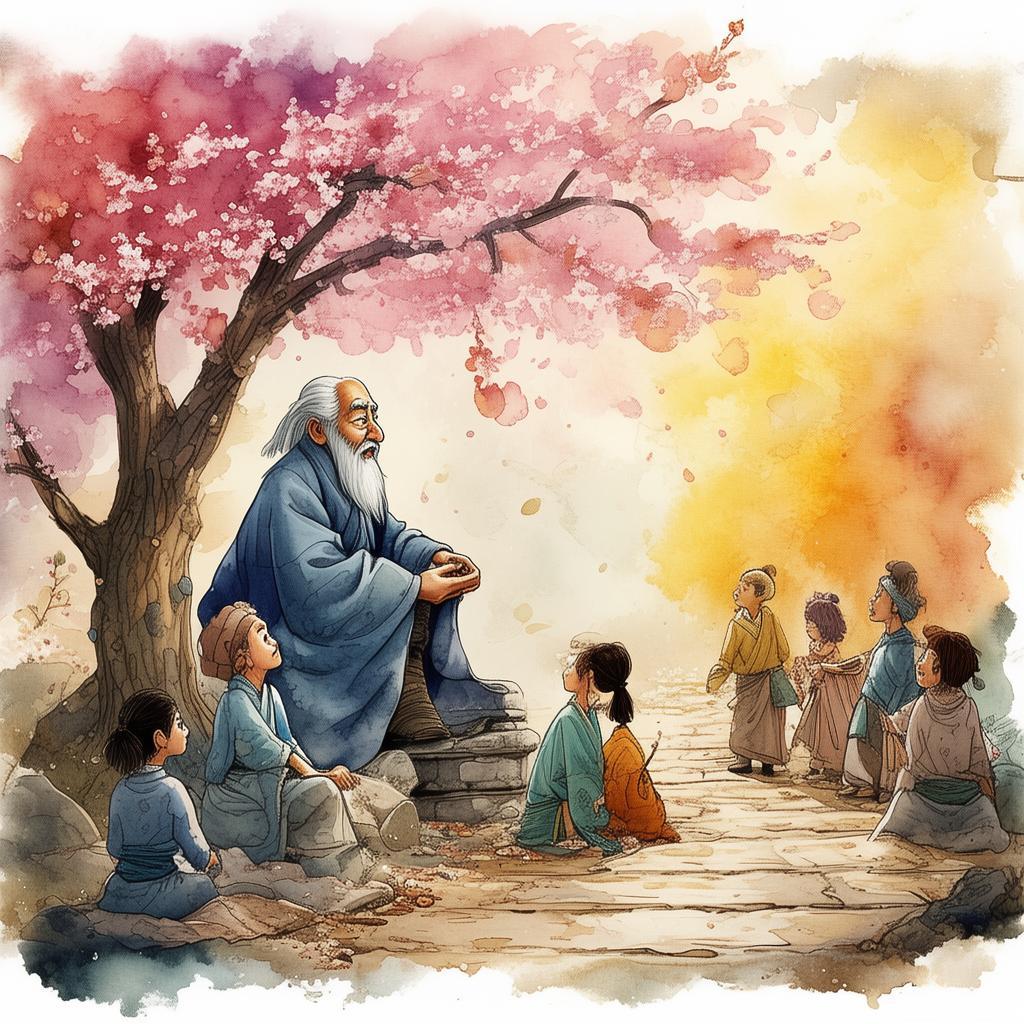
The children would listen intently, their eyes wide with wonder and fear. "But the Mountain God, he is real," Old Man Li would continue. "He has been with us since the beginning, guiding us and protecting us. We must never forget the lessons we learned from the False God."
As the years passed, the story of Feng and the False God became a part of the village's history, a cautionary tale passed down through generations. It was a reminder that faith must be discerned, and that the pursuit of power and the desire for immediate gratification could lead to tragic consequences.
The villagers would gather each year at the Mountain God Festival, their hearts filled with gratitude for the deity that had always been with them. They would recount the tale of Feng, the False God, and the lessons learned from his deception.
And so, the legacy of Feng and the False God lived on in the hearts of the villagers of Jingli, a testament to the strength of their faith and the wisdom of their ancestors.
✨ Original Statement ✨
All articles published on this website (including but not limited to text, images, videos, and other content) are original or authorized for reposting and are protected by relevant laws. Without the explicit written permission of this website, no individual or organization may copy, modify, repost, or use the content for commercial purposes.
If you need to quote or cooperate, please contact this site for authorization. We reserve the right to pursue legal responsibility for any unauthorized use.
Hereby declared.
